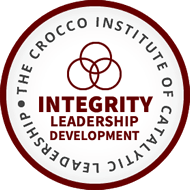Our country is presently engaged in an ugly war of words. Our national tonality is presently marked with anger, resentment, bitterness, and hatred. As leaders, we must remind ourselves that we never speak a neutral word. Our words are either impacting others negatively, or positively. There is an ancient proverb that has particular relevance to the current relational state of our country, and in the leadership so many of us are seeking to provide for others. This proverb asserts, “Death and life are in the power of the tongue.” There is a dramatic contrast that is being made in this proverb through the use of the words death and life. Simply interpreted, our words are either life-taking, or our words are life-giving. In many respects, there is an important warning that is associated with this proverb, because it confronts us with the potentially lethal impact of our words upon the lives of others. Equally significant, it encourages us to celebrate the potentially positive and beneficial nature of our words in the lives of others.
The world of leadership is a world that necessitates building relationships and influencing people. In light of this leadership dynamic between leaders and their people, every leader must strive to become a competent communicator. It is an undeniable reality, that in the vast majority of cases, the best leaders are the best communicators. It is also equally true, that the worst leaders are often the worst communicators. One of the most practical ways for leaders to improve the quality of their communication with others, is to become increasingly more aware, and cognizant, of the far-reaching impact their words have upon others. There are too many leaders who speak carelessly, impulsively, and thoughtlessly without measuring whether their words are going to impact others negatively, or positively. This is a glaring fault in many leaders.
The ancient proverb “Death and life are in the power of the tongue” provides every leader with a practical framework to guide their interactions with others. This framework can become a vital and practical tool for any leader, helping them to consider the impact that their words are about to have upon others. One of the best pieces of advice any of us could ever be given is to think before we speak! This applies even more to leaders than it does to non-leaders because of the extensive influence leaders and their words have upon others. In childhood, many of us believed the old adage, “Sticks and stones may break my bones, but names will never hurt me.” But now that we have grown up, we know that some of the deepest hurts, wounds, and scars of our lives have come as a result of the words of others.
Leaders can’t afford to live in a world where we engage in a “war of words” with others. As leaders, our words must never become the life-taking agents of death in the lives of others. We must refuse to speak deceitful lies, and engage in malicious gossip and slander that divides the unity of organizations, and potentially ruins the reputation of others. On the contrary, we want our words to become the life-giving agents of life in the lives of others. As leaders, we want our words to breathe fresh life, vitality, and encouragement into our relationships with others. We must lead with a passion to lift others up, rather than to tear others down with our words. It is our privilege as leaders to inspire, and elevate others through our positive, upbeat, respectful, kind, gracious, thankful, affirming, appreciative, and solutions-oriented words. Are you the kind of leader who is taking-life or giving-life through your words? Let’s resolve to be life-givers, not life-takers, every time we open up our mouths as leaders.

